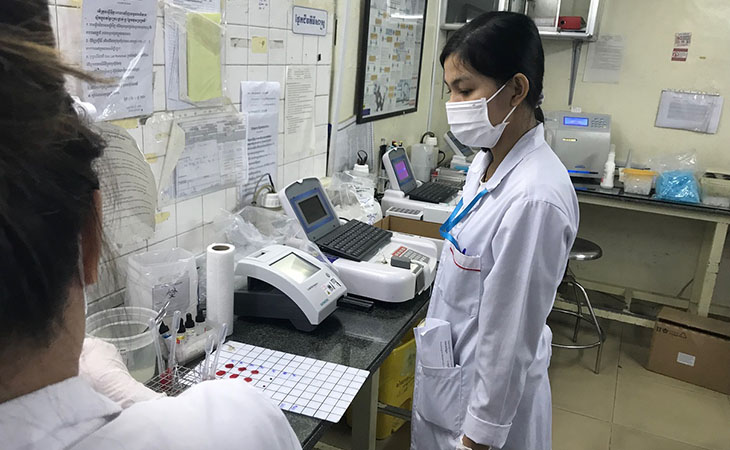First training course on Quality Management System by the NRL in Cambodia


Cambodia
June 3, 2021
From May 26 to June 4, members of the SEALAB project in Cambodia follow a training on Quality Management System by the NRL.
Patients and medical doctors rely on results generated by laboratory testing for disease diagnosis. Consequently, to be useful, laboratory results must be as accurate as possible to avoid unnecessary or inappropriate treatment. In this process, laboratory error can be minimized by implementing an effective Quality Management System (QMS). As the SEALAB project aims at enabling laboratories to better detect emerging infectious diseases, an important component is dedicated to assessing and improving QMS.
In Cambodia a training course was organized for five hospitals, four of which are referral provincial hospitals, in Battambang, Kampong Cham, Kampong Chhnang and Takeo Provinces and a fifth in Kossamak Hospital in Phnom Penh. The course is given by the NRL in order to improve QMS by identifying opportunities for upgrading and making appropriate changes. François Lamoury and Sandy Walker lead the first training session.
The first QMS training course covered several topics, illustrated with practical activities:
Due to travel restrictions, the training was held online and successfully brought together participants from human and animal health, with different knowledge and proficiency. Dr. Sokunna (BMLS), Dr. Davun (GDAHP) and Dr. Mardy greatly facilitated the One Health approach. The training was split into half-day sessions to prevent disturbing the routine work of the laboratories.
To organize the virtual meeting the NRL proposed a relevant and innovative format to make the training interactive and lively. It consisted of pre-questionnaire and post-questionnaire sessions to assess the initial knowledge and the understanding of the training topics, followed by an academic presentation limited to 45 minutes and illustrated by practical activities. Finally, an extended Q&A session gave the opportunity for clarifications and discussions.